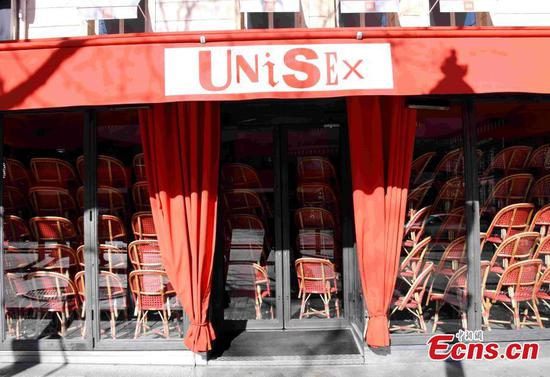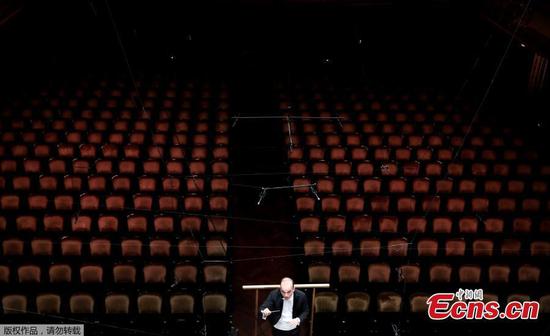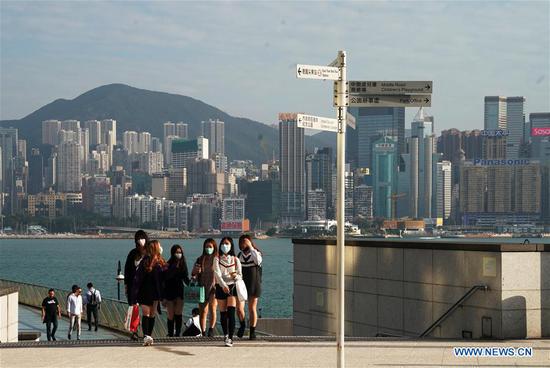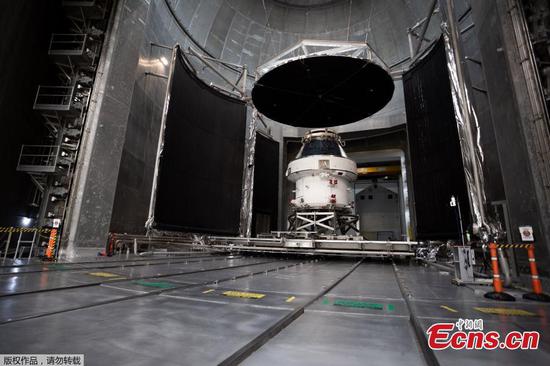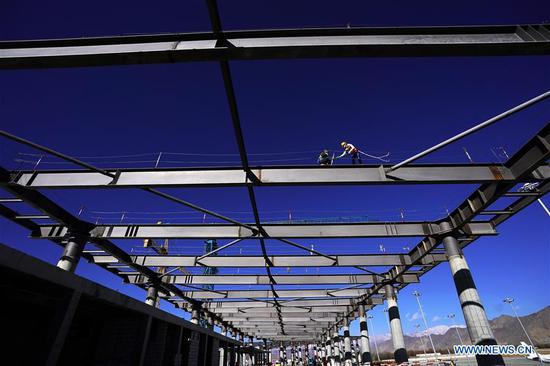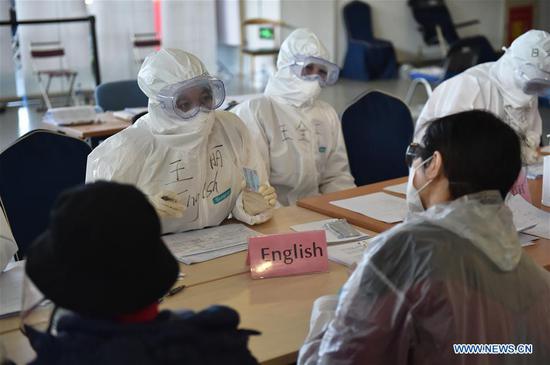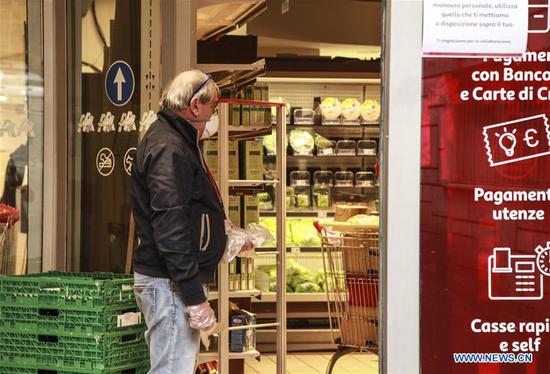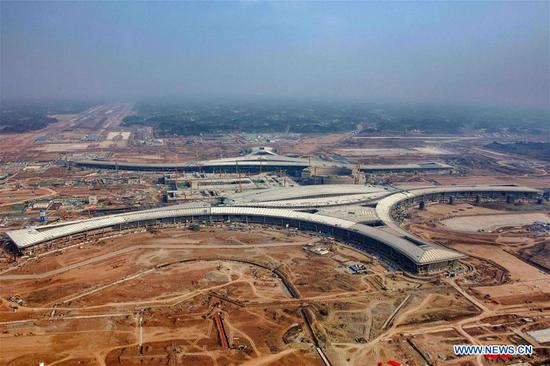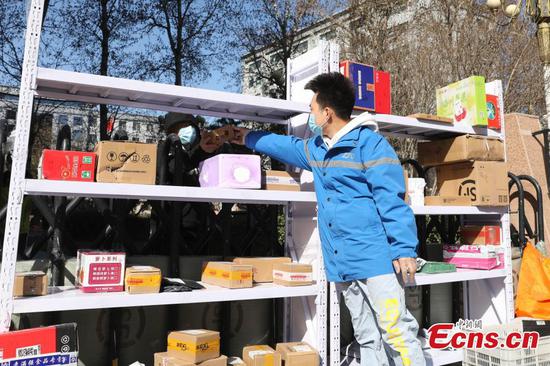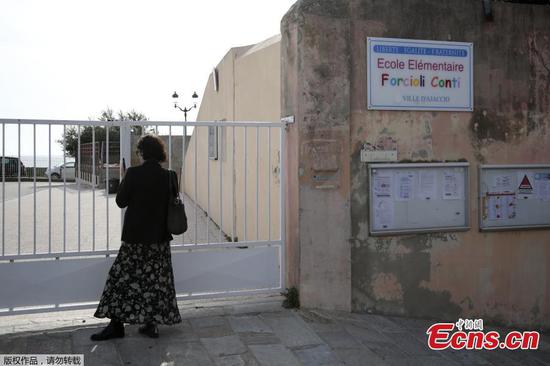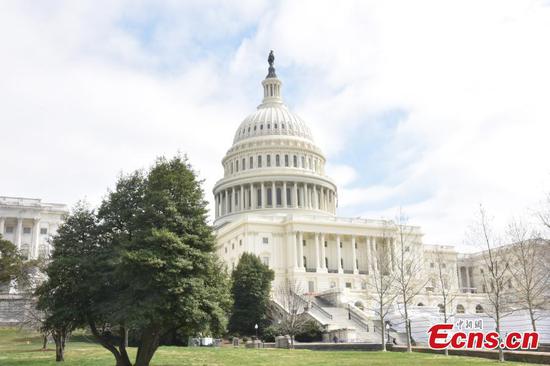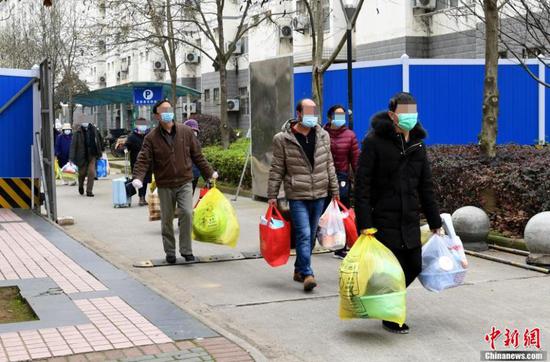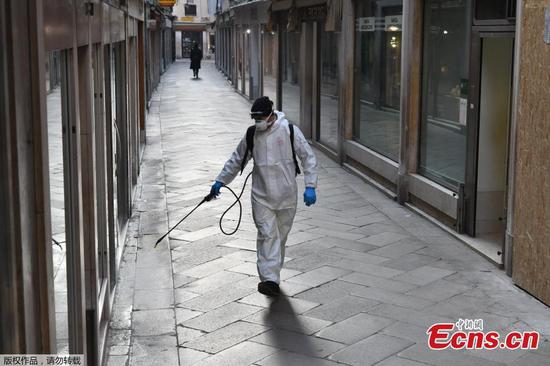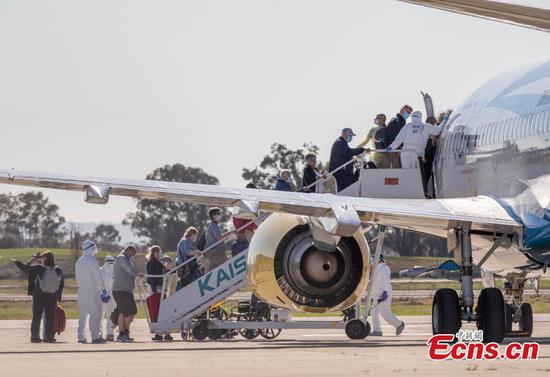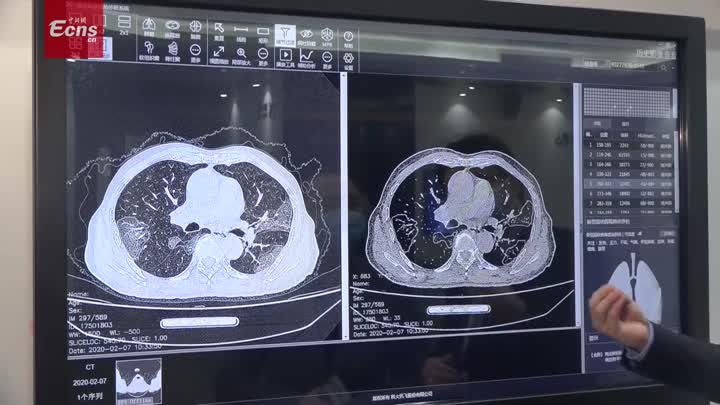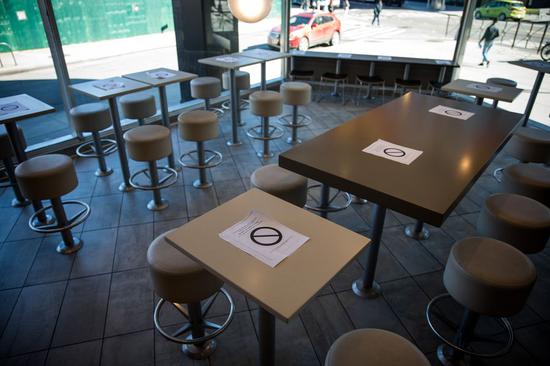
Seating in a McDonald's is blocked off partially to reduce capacity by fifty percent in New York, the United States, March 15, 2020. (Photo by Michael Nagle/Xinhua)
The U.S. economy may be headed for a sharp recession, due to panic over the coronavirus, according to economists, banks and U.S. financial media, although the slowdown may be short-lived.
The country is seeing the first signs of a full-blown lockdown, with New York, Los Angeles and Washington announcing they are temporarily closing public buildings. Businesses from gyms to dentists' offices to bars are also closing, in a bid to halt the spread of the virus that is sweeping across the globe and has killed at least 71 people in the United States.
As coronavirus fears lead consumers and businesses to cut back on spending and investment, Wells Fargo, a major U.S. bank, on Monday said a recession is "imminent."
In its updated economic outlook report, the major bank forecast the U.S. economy will contract sharply in the second and third quarters, but added that it will be short-lived.
"We expect to see a sharp, albeit short-lived U.S. recession in Q2 and Q3," Sam Bullard, a senior economist at Wells Fargo, told Xinhua, adding "we look for GDP growth to slowly recover by year's end."
U.S. President Donald Trump said on Monday that the U.S. economy "may be" heading toward a recession due to the novel coronavirus outbreak.
"Well, it may be. We're not thinking in terms of recession. We're thinking in terms of the virus," Trump said at the White House in response to a question about whether the U.S. economy is heading into a recession.
"Once we stop, I think there's a tremendous pent-up demand both in terms of the stock market and in terms of the economy," he said.
SHORT BUT HARSH
U.S. business news channel CNBC on Monday noted that the typical post-World War II recession has seen the U.S. unemployment rate increase about 2 to 2.5 percentage points. That could mean job losses to the tune of around 3.5 million, according to David Wilcox, a senior fellow at the Peterson Institute for International Economics, as quoted by CNBC.
At the same time, the U.S. National Federation of Independent Business released data on Friday showing that 24 percent of businesses have been impacted by the virus. While this is far from a majority, some U.S. financial media believe this may be just the beginning. The travel industry is taking the brunt of the impact, oil prices have taken a nosedive and consumer spending is decreasing as people self-isolate in a bid to avoid contact with the virus.
Some top economists believe the United States may have already slipped into recession.
"I wouldn't be one bit surprised if when we look back at the data, it is decided ... that the recession started in March," Alan Blinder, a former Federal Reserve vice chairman, told CNBC in a recent interview.
Markets on Monday took a nosedive, after the nation's top infectious disease expert on Sunday said Americans should get ready to stay indoors in a bid to stop the spread of the virus. The Dow Jones Industrial Average dropped nearly 3,000 points, in the worst trading day since the massive 1987 crash.
Americans should be prepared to "hunker down significantly more than we as a country are doing," said Anthony Fauci, director of the National Institute of Allergy and Infectious Diseases, while speaking Sunday on NBC's "Meet the Press."
"A BIG REBOUND"
But on a brighter note, Wells Fargo said in its outlook that GDP will slowly recover in this year's second half, in response to the substantial fiscal stimulus from the U.S. Federal Reserve.
Moreover, Treasury Secretary Steven Mnuchin on Sunday downplayed recession fears, telling Fox News that he foresees "a big rebound" later this year, as long as the government handles the crisis well.
"It's clear we need to get economic relief to the economy right now," Mnuchin said. "If the medical professionals are correct and we're doing all the things, I expect we'll have a big rebound later in the year."
"This isn't like the financial crisis, as I've said, this will have an end to it as we confront the virus," Mnuchin said, referring to the 2008 financial crisis that sparked a long, drawn-out recession.
Mnuchin reflected the sentiments of many in the financial world who advise buying stocks in times of crisis, as shares can be purchased at a major discount and will likely rise in value once the dust clears.
"What I can tell you is people who bought stocks after the crash in 87, people who bought stocks after the financial crisis did really well," he said, referring to the stock market crash of 1987.
"So in terms of long-term investors, I have every confidence that this market is going to be higher down the road and the U.S. is still the greatest place to invest," he said.










